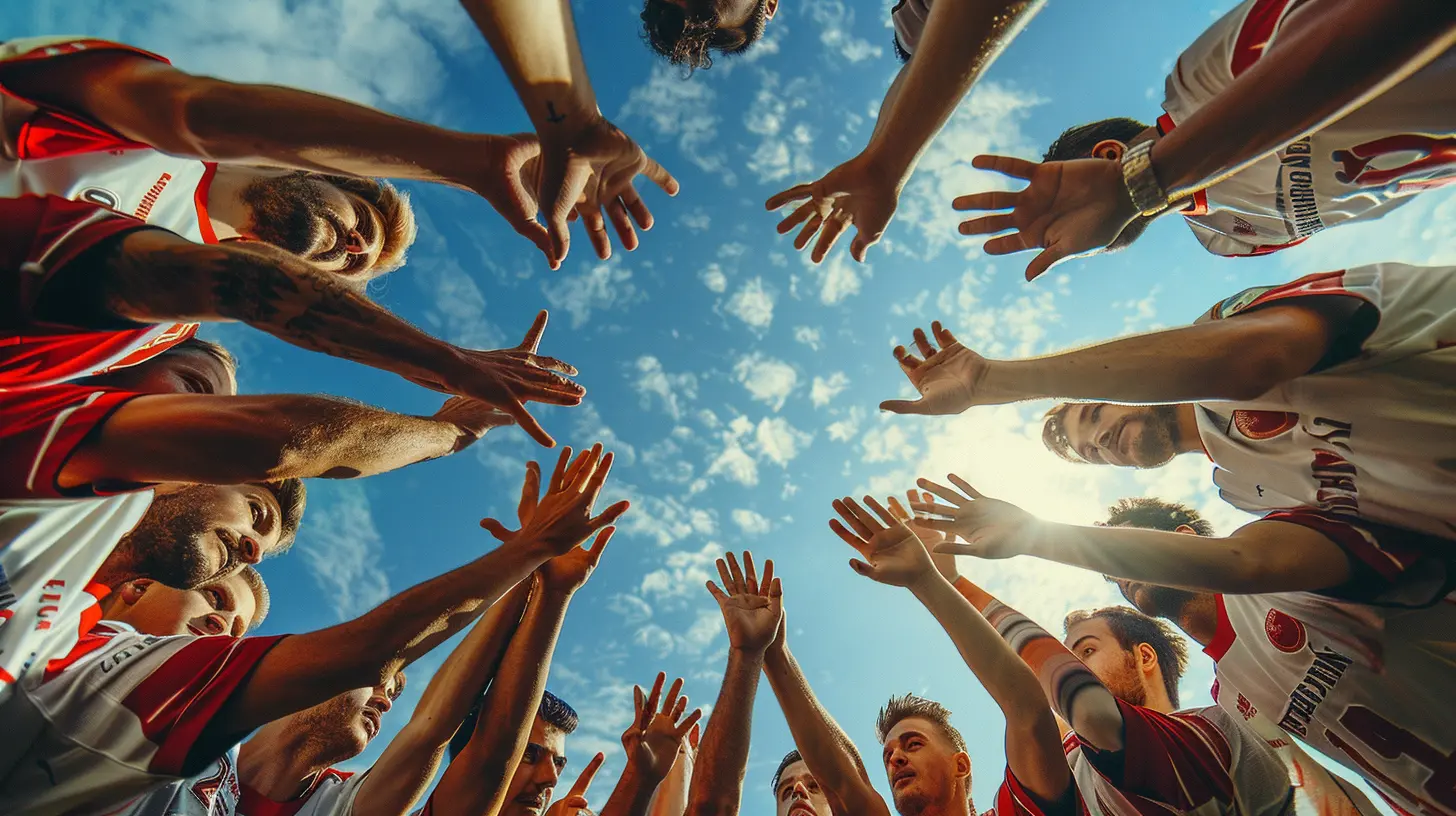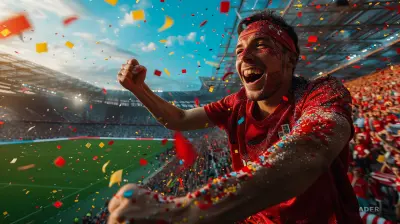Dealing with Egos: Managing Star Players in a Team Setting
16 November 2025
In the world of team sports, managing talented athletes is both a blessing and a challenge. You’ve got skill, experience, and the kind of flair that can win trophies. But with star players, there's often another teammate lurking in the background — the ego.
Whether you're a coach, team captain, or even a fellow player, handling the egos of star players can sometimes feel like walking a tightrope. You want to keep everyone happy, but you also don’t want to disrupt the team dynamic. So, how do you balance it all? How do you manage egos without letting them run wild or, worse, causing team implosion?
Let's dive deep into how to manage star players in a team setting, ensuring that their talent shines without overshadowing the collective goal.

The Nature of Egos in Sports
Let’s be real: ego is part of the game. It’s natural. In fact, in competitive sports, a bit of ego can be a good thing. It fuels confidence, pushes players to take risks, and can elevate performances. Think of it as jet fuel for an athlete’s ambition. But, like jet fuel, if not handled correctly, it can be explosive.Star players usually know they’re good. After all, they’ve spent years honing their craft, and they've probably been hearing about how great they are since day one. This naturally builds a sense of self-importance and pride in their abilities. It’s not necessarily a bad thing, but if left unchecked, this can lead to arrogance, selfishness, and disrupt team unity.

Why Egos Matter in a Team Setting
Team sports aren’t just about individual skill; they’re about collective effort. Every player, from the star striker to the benchwarmer, has to work together toward one common goal: winning. When star players start letting their egos dictate their actions, it can throw off the balance of the team.Think about it like this: a team is like a well-oiled machine, and each player is a cog in that machine. If one cog starts spinning out of sync — even if it's the biggest, shiniest cog — the entire system can break down. And that’s where managing egos becomes crucial.

Recognizing Signs of a Disruptive Ego
Before diving into strategies on how to manage a star player's ego, it's important to first recognize when ego is becoming a problem. Here are some common signs:- Self-Centeredness: They focus more on personal stats than team success. If they’re more worried about how many points they score or how many accolades they receive rather than the team’s victory, that’s a red flag.
- Resistance to Criticism: They react poorly to constructive feedback. Instead of seeing criticism as a tool to improve, they may see it as an attack on their abilities.
- Lack of Team Play: They refuse to pass or collaborate, thinking they can do it all themselves. This often leads to poor decisions on the field and frustrated teammates.
- Entitlement: They expect special treatment. Whether it’s demanding more playing time, being excused from practice, or expecting to be the center of attention, entitlement can quickly breed resentment.
Once you can identify these behaviors, you’re one step closer to addressing them effectively.

Strategies for Managing Egos
1. Set Clear Expectations From Day One
The best way to manage egos is to set the tone early on. From the very first practice, meeting, or season kickoff, make sure every player knows that no one is bigger than the team. Lay down clear expectations about behavior, effort, and teamwork.This doesn’t mean you can’t recognize or reward individual achievements. In fact, acknowledging their talent can help star players feel valued, but always circle back to the idea that the team comes first. It’s about balancing individual recognition with collective responsibility.
2. Foster Open Communication
Communication is key in any relationship, and coach-player or teammate relationships are no exception. Sometimes, star players might not even realize they’re letting their ego get the best of them. This is why it’s important to foster a culture where players feel comfortable giving and receiving feedback.Instead of letting frustrations boil over, have one-on-one conversations with star players. Let them know how their actions are affecting the team. But, make sure to approach these conversations with empathy. Instead of accusing them, frame it as a discussion about how they can help the team even more by being a better leader or teammate.
3. Emphasize Teamwork Over Individual Achievement
As a coach or team leader, it's crucial to constantly emphasize the importance of teamwork. Make it a point to publicly praise selfless plays, assists, and defensive efforts just as much, if not more, than scoring or flashy moves.Team-building activities off the field can also help. Whether it's group dinners, team challenges, or outings, these experiences remind everyone that you're all in this together. When star players feel emotionally connected to their teammates, they’re more likely to put the team’s success above their personal glory.
4. Encourage Leadership Roles
One of the most effective ways to manage star players' egos is to channel that confidence into leadership. Give them responsibilities that go beyond their on-field performance. For instance, if your star player is the most experienced, make them a mentor for younger players. Let them lead drills during practice or give pep talks before games.When star players are given a leadership role, they often rise to the occasion and start thinking more about the team’s success rather than just their own accomplishments. Plus, it gives them a sense of control and importance, which can help curb the ego in a positive way.
5. Hold Everyone Accountable
One of the worst things you can do is let a star player get away with poor behavior just because they’re talented. If they miss practice, show a lack of effort, or act selfishly during games, they need to face the same consequences as everyone else.Accountability is crucial. If other players see that star players are getting special treatment, it can create resentment and divide the team. On the flip side, when star players are held accountable, it reinforces the idea that the team comes first.
6. Leverage the Power of Competition
Sometimes, nothing humbles a star player more than a little bit of competition. If you have another player who’s close in skill level, don’t hesitate to give them playing time. Healthy competition can push star players to work harder and remind them that no one’s spot is guaranteed.This doesn’t mean you should bench them at the first sign of an ego flare-up, but if they start slacking or acting out, giving someone else a shot can serve as a wake-up call. It’s a subtle reminder that the team’s success is the priority, and individual performance is just one part of the equation.
7. Use Positive Reinforcement
When star players show humility, teamwork, or leadership, make sure to acknowledge it. Positive reinforcement can go a long way in shaping behavior. Praise them for passing the ball when they could’ve taken a shot themselves. Recognize their efforts in helping a teammate or for showing growth in accepting feedback.People, especially athletes, thrive off validation. By reinforcing the behavior you want to see, you’re helping to mold not just a skilled player but a team player.
8. Bring in a Mental Skills Coach
Sometimes, managing egos goes beyond what a coach or captain can handle. In these cases, bringing in a mental skills coach or a sports psychologist can be beneficial. These professionals are trained to help athletes manage their emotions, handle pressure, and develop a team-first mindset.A mental skills coach can guide star players to channel their confidence in healthy ways and help them understand how their behavior impacts the team dynamic. Plus, it can relieve some of the burden from head coaches who already have plenty on their plate.
The Fine Line Between Confidence and Arrogance
It’s important to remember that not all displays of ego are bad. Confidence is essential in sports. You want your star players to believe in their abilities and have the courage to take the game-winning shot or make the crucial play. The challenge is keeping that confidence from turning into arrogance.Confidence says, “I know I can contribute to the team.” Arrogance says, “I’m the only one who can make the team succeed.” The goal is to nurture the former while keeping the latter in check.
Conclusion
Managing star players in a team setting requires patience, communication, and a careful balance of praise and accountability. Egos, when properly managed, can fuel success. But left unchecked, they can lead to division and underperformance.Remember, team sports are about collective effort. Every player, no matter how talented, needs to buy into the team-first mentality. By setting clear expectations, fostering open communication, and emphasizing teamwork, you can ensure that your star players shine without overshadowing the rest of the squad.
So, the next time you're dealing with a star player who’s letting their ego get the best of them, take a deep breath. With the right approach, you can turn that ego into a powerful asset for the entire team.
all images in this post were generated using AI tools
Category:
Team SportsAuthor:

Ruben McCloud
Discussion
rate this article
1 comments
Starla Simmons
Managing star players is like herding cats—if the cats were super talented and convinced they could score in their sleep. Just remember: every cat needs a little love and a good nap!
December 7, 2025 at 11:53 AM

Ruben McCloud
Great analogy! Balancing talent and temperament is key; a little love and downtime can go a long way in fostering teamwork.


